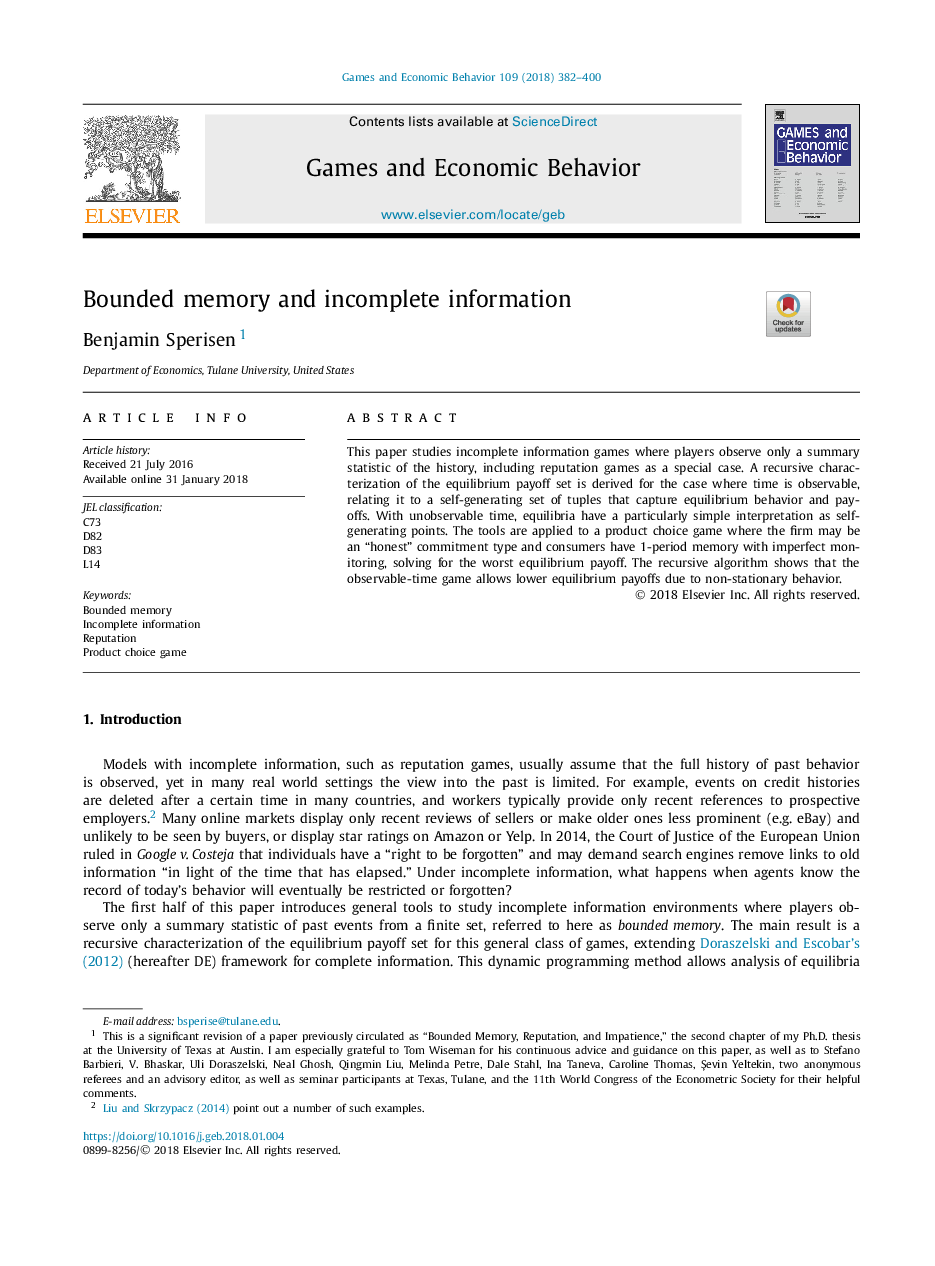| Article ID | Journal | Published Year | Pages | File Type |
|---|---|---|---|---|
| 7352929 | Games and Economic Behavior | 2018 | 19 Pages |
Abstract
This paper studies incomplete information games where players observe only a summary statistic of the history, including reputation games as a special case. A recursive characterization of the equilibrium payoff set is derived for the case where time is observable, relating it to a self-generating set of tuples that capture equilibrium behavior and payoffs. With unobservable time, equilibria have a particularly simple interpretation as self-generating points. The tools are applied to a product choice game where the firm may be an “honest” commitment type and consumers have 1-period memory with imperfect monitoring, solving for the worst equilibrium payoff. The recursive algorithm shows that the observable-time game allows lower equilibrium payoffs due to non-stationary behavior.
Related Topics
Social Sciences and Humanities
Economics, Econometrics and Finance
Economics and Econometrics
Authors
Benjamin Sperisen,
